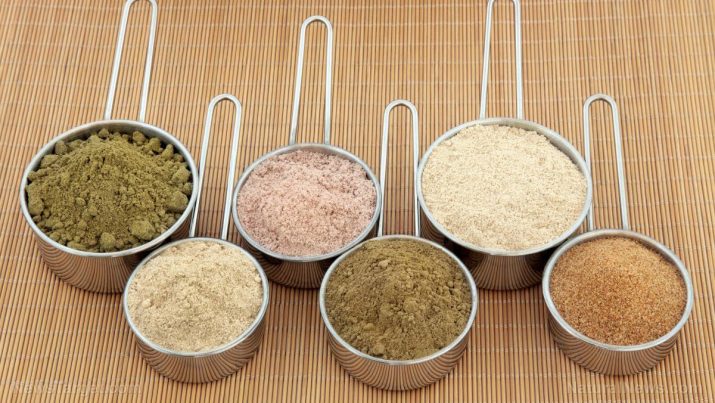Prepper protein: Which powders should you stockpile?
Wednesday, September 04, 2019 by Melissa Smith
http://www.bugout.news/2019-09-04-prepper-protein-which-powders-should-you-stockpile.html

Although protein powders are more commonly used by body builders for building muscles, they are a great addition to your prepper stockpile. You can also add them to your diet now.
Because many people don’t get enough protein, some supplement with protein powders. A good-quality protein powder can be a nutritious snack. Many varieties have added vitamins and minerals, which makes them a more valuable survival food.
Protein powders are also an ideal survival food during emergency situations, such as when a family member is sick or injured. He or she may have difficulty chewing solid food due to an injury or just don’t have an appetite. A shake packed with protein powder, nutrient-rich fruits, and a base of dairy or non-dairy milk can provide all the nutrition a person needs with no chewing required.
However, not all protein powders are the same. Some can be full of chemicals and should be avoided. The higher quality ones are more expensive, but worth your money. Here are some considerations before buying protein powders:
- How was it sweetened? Some protein powders are sweetened using aspartame, sucralose, or other artificial sweeteners. If that is the case, don’t buy them. Although natural cane sugar is better than artificial sweeteners, coconut sugar or stevia are your best options.
- What is its protein source? Knowing the protein source of your powder can give you an idea of what suits you best. If you are lactose intolerant, avoid buying whey or casein protein. Hemp protein has an earthy flavor some people don’t like in a fruity shake, while the unflavored one is fine. Pea protein and egg protein have a light taste.
- Does it have additional ingredients promising exaggerated benefits? If you can’t identify any of the extra ingredients in the protein powder, it’s best to avoid it. Beware of these toxic ingredients: soy lecithin, artificial growth hormones and steroids, artificial sweeteners, maltodextrin, soy, and gluten.
- How much protein does one serving contain? Ideally, you want a product that contains at least 15 g of protein. Powder from animal products like egg or dairy will have about 25 g of protein.
Storing protein powders
Protein powders are a great addition to your survival stash because they last for quite a long period. An unopened tub of protein powder can last for up to two years. However, it should be consumed in rotation; it can be enjoyed now but replenish it as much as possible.
Protein powders are one of the few things best stored in the package they come in, given that they come in one of those plastic canisters with a sealed inner top. If your protein powder comes in a bag, transfer it into another mylar bag without opening the original bag until you are ready to use it. When it becomes exposed to oxygen, it won’t stay fresh in the long run. Keep it in a cool, dry, dark place.
Protein powder may still be used after its best-by date, if it doesn’t produce an off smell. However, it may start to lose its potency because the lysine has broken down, and its flavor may also begin to degrade.
Adding protein powder to your diet
Protein powders are commonly added to smoothies or shakes, but there are other ways to add them to your diet. You can use them as a substitute for part of the flour in pancakes or baked goods. You can also add them to sauces or creamy soups, or in carb-heavy dishes like oatmeal and mashed potatoes.
Learn more about protein powders and other foods you can add to your survival stockpile at EmergencyFood.news.
Sources include:
Tagged Under: Tags: bug out, emergency food, food collapse, food independence, food supply, functional food, goodfood, off grid, Off-the-grid living, preparedness, prepper, prepping, protein powders, starvation, superfoods, survival, survival food, survivalist

